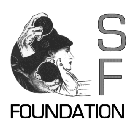Foundation Studies in Science Fiction
In addition to the journal, the SFF has produced a number of critical works as part of the series, Foundation Studies in Science Fiction. Copies are still available for a special discount price of £5.00 (plus p&p) from Farah Mendlesohn (farah.sf@gmail.com). We are interested in publishing further titles. If you have a topic in mind, please approach one of the committee members (see the list of Contacts above).
The Parliament of Dreams: Conferring on Babylon 5 (1998) edited by Edward James and Farah Mendlesohn. A PDF of this collection is available here.
Terry Pratchett: Guilty of Literature (2000) edited by Andrew M. Butler, Edward James and Farah Mendlesohn. Republished in a new edition in 2008 by Old Earth Books.
The True Knowledge of Ken MacLeod (2003) edited by Andrew M. Butler and Farah Mendlesohn
Ken MacLeod is one of the major talents in contemporary British science fiction. His novels are complex explorations of future politics and revolutions, and bring fresh life and wit to the utopian form. This volume features essays by John H. Arnold, K.V. Bailey, Neal Baker, James Brown, Adam Frisch, Joan Gordon, Farah Mendlesohn, John Newsinger and Andy Wood and interviews with MacLeod by Andrew M. Butler and Andy Sawyer. It covers not only the Fall Revolution Quartet and the Engines of Light Trilogy, but also MacLeod’s polemics and poetry. The essays discuss his politics and analyze the ideological history from which they emerge. They also explore his place in the history of science fiction, the rights of the posthuman and the ethics of genocide. In addition, there are contributions from Macleod himself: a re-examination of fellow Scot Iain M. Banks’ Consider Phlebas and a groundbreaking attempt to link Marxism, science fiction and the longing for apocalypse and utopia.
A Celebration of British Science Fiction (2005) edited by Andy Sawyer, Andrew M. Butler and Farah Mendlesohn. Published as Foundation 93.
Parietal Games: Critical Writings by and on M. John Harrison (2005) edited by Mark Bould and Michelle Reid
M. John Harrison is best known for his space operas, The Centauri Device and Light, the Viriconium sequence, and his award-winning non-science-fiction novel, Climbers. But he has also had a parallel career as a critic, both for specialist science-fiction venues such as Foundation, Speculation and New Worlds, and mainstream publications such as The Guardian, The Times Literary Supplement and The Spectator. Over four decades he has reviewed novels by authors as diverse as Anne McCaffrey, Kim Stanley Robinson, William Burroughs, John Updike and Joanna Trollope. Parietal Games collects Harrison’s critical writings for the first time and reveals him as an insightful and trenchant voice inside and outside science fiction. This volume also contains articles about Harrison’s oeuvre, from Mark Bould, John Clute, Rjurik Davidson, Graham Fraser, Nick Freeman, Elizabeth Hand, Rob Latham, Farah Mendlesohn and Graham Sleight.
Christopher Priest: The Interaction (2005) edited by Andrew M. Butler
The Unsilent Library: Adventures in New Doctor Who (2011) edited by Simon Bradshaw, Graham Sleight and Tony Keen. Foreword by Robert Shearman
The return of Doctor Who to regular TV production after many years of absence proved to be one of the BBC’s greatest successes of the last decade. To a great extent this was down to the distinctive re-invention of the programme by its chief writer and executive producer, Russell T. Davies, and the group of writers he assembled. The Unsilent Library examines the storytelling style and techniques of the first five years of New Who. Ten in-depth critical essays explore how its writers have updated a series with a history stretching back five decades to stand in the forefront of contemporary science fiction drama. Contributors include Graham Sleight, Paul Hawkins, Una McCormack, Antony Keen, Sydney and Andy Duncan, Catherine Coker, James Rose, Leslie McMurtry, Richard Burley and Clare Parody.



